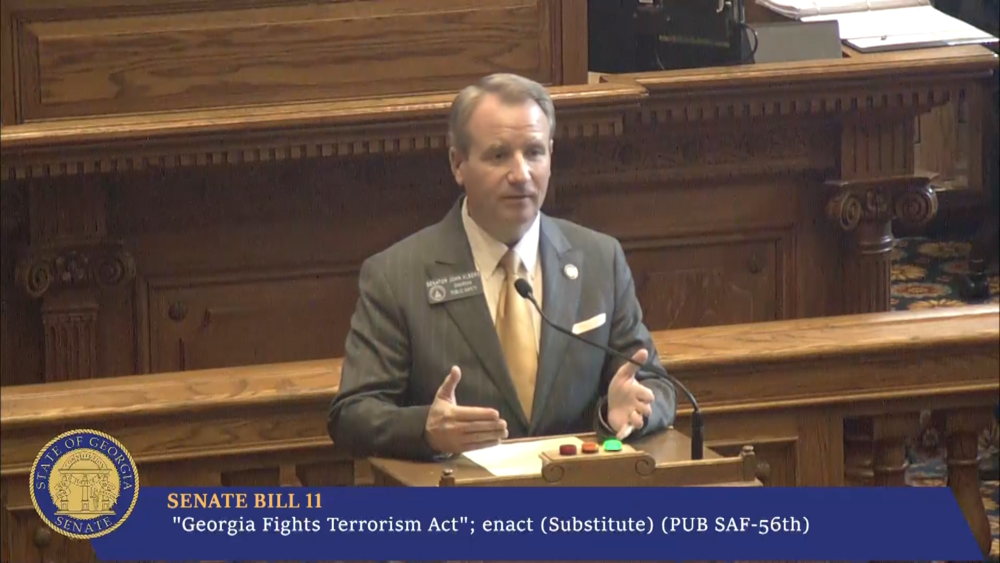
Section Branding
Header Content
Lawmakers: Session's first bill passes the Senate on Day 11
Primary Content

The Georgia Senate passed its first bill on Day 11 of the legislative session.
Senate Bill 11, called the "Georgia Fights Terrorism Act," would allow the Georgia Bureau of Investigation (GBI) to investigate allegations of terrorism, independently or collaboratively with other law enforcement agencies. The types of terrorism outlined in the bill include domestic, cyber, biological, chemical, and nuclear.
SB 11 was included in a larger, anti-gang bill last session, SB 359. That bill passed the Senate last year but was stalled in the House and died on Sine Die. SB 11 and SB 359's sponsor Sen. John Albers (R – Roswell) is splitting the anti-gang legislation into several bills this session.
"Georgia has some of the strongest terrorism laws in all 50 states, and we want to make sure that we are keeping our folks safe," Albers said.
SB 11 passed 49 to 3. The three votes against SB 11 all came from Democrats. Sen. Josh McLaurin (D – Sandy Springs) was one of the senators who voted against the bill. He cited concerns over the GBI competing with local law enforcement, and the implications it could have on protests.
"We have to remember this bill is about 'domestic terrorism,'" he said. "But that phrase is loaded, because people who are members of the majority are using the term ‘domestic terrorism’ to label excessive protests that caused damage. While that's obviously bad for our communities, to have protests that lead to property damage, to escalate their rhetoric on the situations by calling them ‘domestic terrorism’ puts us into a new realm when it comes to how much state power we bring down on people."
McLaurin also objected to a Senate Resolution to recognize former U.S. Sen. Kelly Loeffler and her activist organization, Greater Georgia Action, Inc. McLaurin said the resolution was partisan, and did not belong on an unanimous consent calendar. Many resolutions are voted on through an unanimous consent calendar where lawmakers do not individually vote. The resolution was not voted on Wednesday. The lieutenant governor asked for the resolution to be sent to the rules committee to “be vetted.”
Both chambers have been slow to vote on bills this session as new leaders and members in both the House and the Senate are getting acquainted with their new roles.

